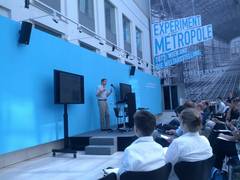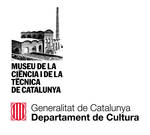26 June 2014
Open Data in Museums. Challenges and Opportunities
On the 12th and 13th of June the conference “Alles offen, alles frei. Open Data in Kultureinrichtungen” took place in Vienna, Austria.
The topic was open data in museums and other cultural heritage institutions and the consequences it might cause. The conference was organized by the “Museumsakademie Joanneum” and the “Wien Museum” and various speakers from Austria, Germany and the Netherlands were invited to present during this event.
Open data is data that is freely available to everyone without technical or legal restrictions on the internet. There are various kinds of open data and open cultural data is one certain type.
Basically, it is cultural data - both digital born as well as digitized data. Moreover, it can be the actual content, like an image or a video, but also metadata (data about data), like the title or the creator of an image.
There are many reasons why museums should publish data freely accessible on the internet. It can be seen as their responsibility, since they often public funded. Furthermore, it will help to reach new target groups and people who would normally not visit a museum.
In addition, opening up data will enable people to participate and get engaged. Especially, folksonomy and social tagging were often mentioned during those two days as one of the main benefits. It is a practice and method of collaboratively adding tags to annotate and categorize content (and by doing so creating metadata).
Another advantage of open data is that it allows museums to present their entire collection online, whereas in the actual museum only a small part is open to visitors. On the other hand, also challenges and risks were discussed. Museums are losing control of their collection and authority of interpretation.
On top of this, giving data away for free might be also challenging the business models of cultural heritage institutions, since institutions are also selling reproductions of artefacts.
In conclusion, museums have to reflect on their role in society. In general, museums are very diverse and defining the goals and the strategy is the very basic foundation for all other actions.
There cannot be a one-size-fits-all solution for all museums. In some cases it makes perfectly sense to publish data freely accessible but in like manners sometimes a more restricting approach is more promising.
Georg Sedlbauer
About the topic, the author of the article suggests the following websites
http://sunlightfoundation.com/opendataguidelines
http://www.openculturebw.de/ [German Only]
back







